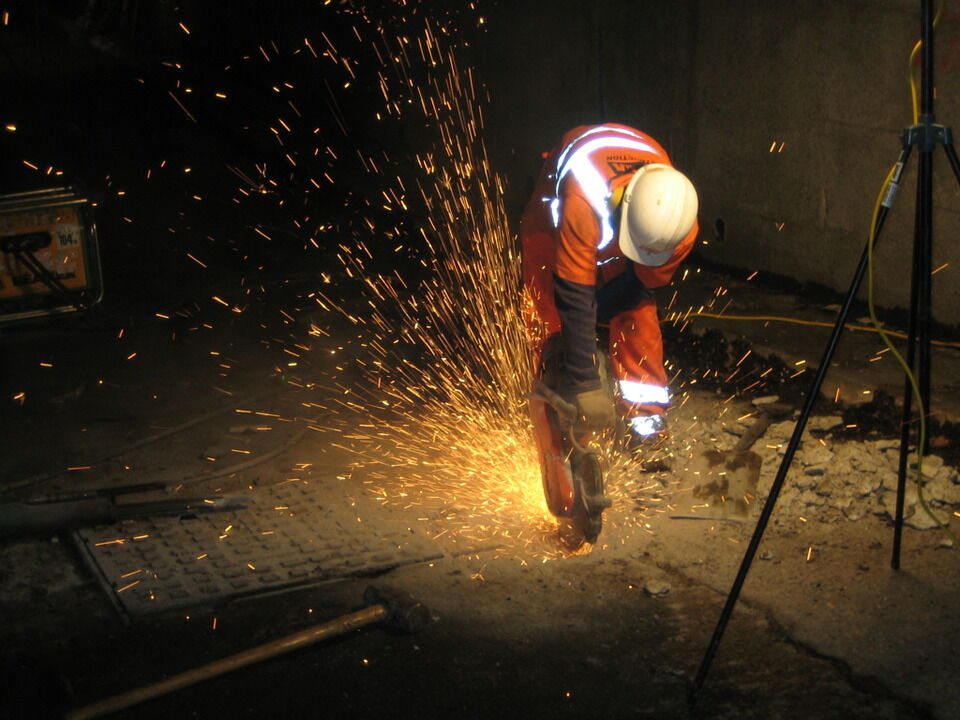Deep Soil Mixing
Tackling Complex Land Remediation Problems Using Soil Mixing
Soil mixing is an in-situ ground improvement technique that enhances the characteristics of weak soils by mechanically mixing them with a cementitious binder. The action of binder materials such as cement, GGBS or bentonite with soil causes the properties of the soil to become more like soft rock.
Soil mixing, techniques have been used extensively throughout mainland Europe, USA, Japan and Australia over the last 60 years, with Scandinavian countries primarily using it for improvement of very soft soils for roads, railways, embankments, harbour silts, to name but a few. In central Europe and now the UK soil mixing has moved forward as a ground improvement solution to deal with contaminated land but also used more and more in a wide variety of applications including, wall construction for cut off walls and retaining walls for basement structures, stabilisation for buildings, slope stabilisation, abutment stabilisation for bridges, stabilisation and remediation of ground for adoptable roads, car parks, retail parks and pipelines thus obviating the need for more traditional methods like piling, excavate and cart away, dynamic compaction, surcharge etc..
There are two types of deep soil mixing for geotechnical and environmental applications, including mass mixing, and column mixing. Both systems offer wet and dry soil mixing solutions which enable the additives to be placed as wet slurry or dry powder. Using soil mixing, engineers will be able to tackle some of the most difficult soil conditions, ranging from flood plains and soft soils through to contaminated land.
Please be aware that this course does not deal with lime stabilisation.
The eLearning course will cover the following:
- What is Soil Mixing?
- Why use Soil Mixing for your Projects?
- Mass Mixing and Column Mixing and their applications
- Vibration Dampening using Soil Mixing
- Soil Mixing for Contaminated Land Remediation
- Soil Mixing for Retaining Walls
- Soil Mixing for Flood Protection
- Embankment Stabilisation using soil mixing
- Pipeline stabilisation using soil mixing
- Canal Applications
- Soil Mixing Research Projects
- Advantages of Soil Mixing
Duration
Please note that the licence is valid for 6 months only from date of purchase.
At the end of the course, participants should have:
- Knowledge of soil mixing and its advantages over other more traditional methods such as piling, excavate and cart away, dynamic compaction, surcharge etc.
- An understanding of the type of soils and projects soil mixing would be suitable for
- Knowledge the types of soil mixing from wet and dry soil mixing and mass and column mixing
- Knowledge of how soil mixing can reduce the carbon footprint on a project and the impact this is making in the world of civil engineering by transforming severely contaminated or poor-quality land into commercially viable land that can be developed.
- Knowledge of the applications for soil mixing
Possible delegates will include:
- Graduate civil engineers
- Civil Engineers looking to expand their knowledge of ground remediation
- Geotechnical Engineers looking for alternative remediation solutions for difficult ground conditions
- Construction professionals
This training course will benefit all those looking for an introduction to soil mixing. Delegates will include both those who have used soil mixing before and those that have no knowledge of soil mixing. This training course does not deal with lime stabilisation or injection grouting; it is purely about soil mixing.
Online
Product code: L07896


